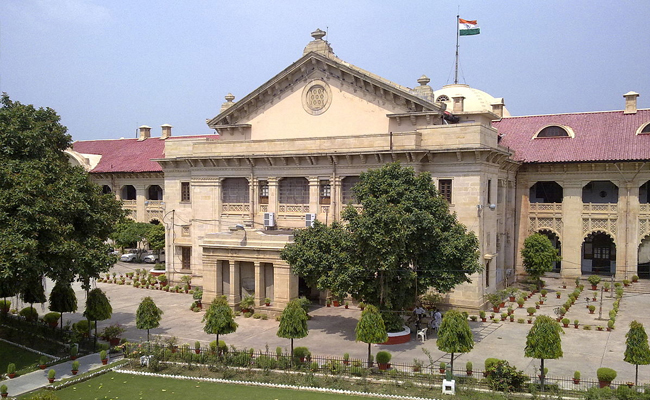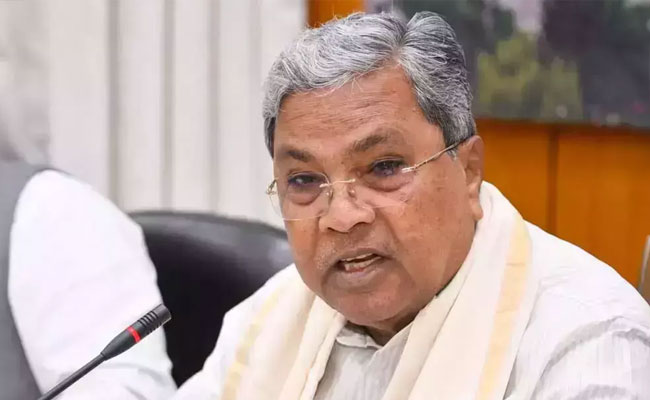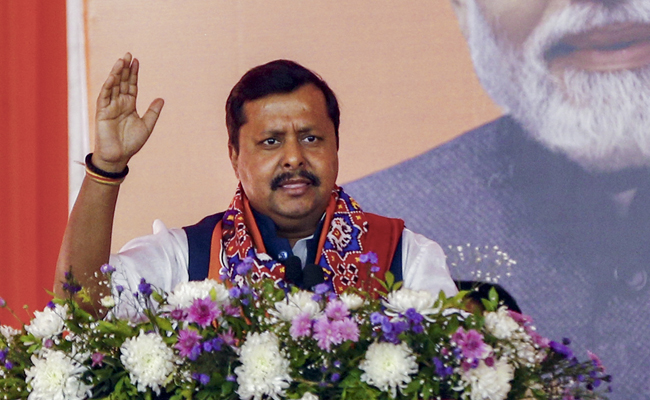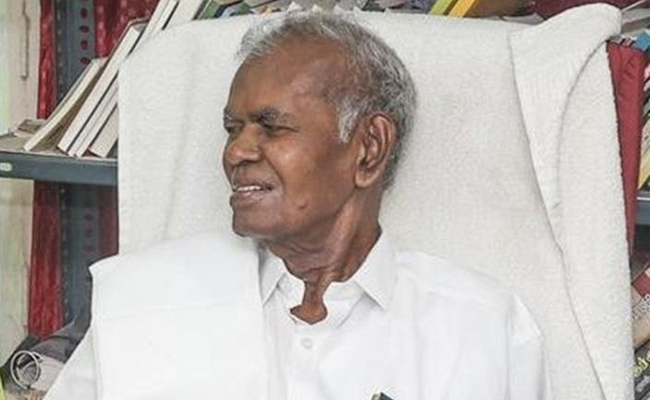Prayagraj: A student of Aligarh Muslim University (AMU) has approached the Allahabad High Court challenging an FIR filed against him for alleged rioting, wrongful restraint, and misconduct during protests demanding the restoration of students' union elections.
The petitioner, Misbah Qaiser, a B.Arch student, has been accused of delivering an objectionable speech against the university administration, allegedly provoking students to block the Vice Chancellor’s vehicle and attempt damage. The FIR further claims that there was an intention to carry out a deadly attack.
In his criminal writ petition, Qaiser contends that around 100-125 students had gathered to raise concerns about attendance and upcoming exams, denying any unlawful demands or incitement. His legal counsel, Advocates Ali Bin Saif and Kaif Hasan, argued that the FIR is an attempt to suppress students’ voices.
“The university has not only suspended the petitioner and other named students but has also filed an FIR against them, making it a clear abuse of the legal process,” the plea states.
Following the alleged incident, the university has suspended Qaiser, barred him from entering the campus, and ordered him to vacate his hostel.
The High Court is set to hear the matter on February 11.
Let the Truth be known. If you read VB and like VB, please be a VB Supporter and Help us deliver the Truth to one and all.
Bengaluru (PTI): Karnataka BJP president B Y Vijayendra on Wednesday lashed out at Chief Minister Siddaramaiah, accusing him of "misleading" the public on government recruitment figures and "failing" to address the concerns of unemployed youth in the state.
In a detailed post on his X handle, Vijayendra alleged that the Congress-led government was attempting to deflect accountability by blaming the previous BJP administration instead of initiating concrete steps to fill vacant posts.
“Chief Minister, please refrain from misleading the people. Do not attempt to shift the blame for all your shortcomings onto the BJP and evade responsibility. Your administration has earned a reputation for arrogance, corruption and mismanagement,” Vijayendra said, adding that students and youth were not naïve enough to be swayed by what he termed as "exaggerated claims".
Vijayendra's response came following Siddaramaiah's statement on Tuesday blaming BJP for the huge backlog of government job vacancies.
The CM had said that when Congress assumed office in 2023, over 2.64 lakh government posts were vacant.
ALSO READ: Bengaluru woman held by CCB Police for selling drugs; Nigerian associate absconding
The backlog resulted from prolonged inaction under the previous BJP government, which failed to initiate timely recruitment or create a structured roadmap, he said.
As thousands of government job aspirants staged a massive protests in Dharwad on Tuesday demanding filling the vacant posts immediately, Siddaramaiah accused BJP leaders of "misleading students for political gains" and said recruitment irregularities and alleged corruption between 2019 and 2023 had eroded trust in the system, leading to the current crisis.
Questioning the government’s public statements on employment generation, Vijayendra referred to figures tabled in the Legislative Assembly.
“According to the official figures presented by your own government in the Legislative Assembly, only 8,157 government recruitments have been completed during your three years in office. Yet publicly claiming that 40,000 posts have been filled raises serious concerns. Does this not amount to misleading the unemployed youth of the state?” the Shikaripura MLA asked.
The BJP leader also raised the issue of large-scale vacancies in government departments, claiming that lakhs of posts remained unfilled even after the Congress came to power.
According to him, the state was struggling financially and questioned the delay in initiating fresh recruitment drives despite what he described as legal clarity on proceeding under the existing reservation framework.
Vijayendra further criticised the government for prioritising the accommodation of party workers and disgruntled MLAs in state-run corporations with ministerial rank and perks, while unemployed youth continued to wait for job opportunities.
“At the very least, please stop making claims that do not align with facts. Youth unrest in the state is mounting. Before matters escalate further, act with sincerity — or consider stepping down and seeking the people’s forgiveness,” the BJP state chief said.
Noting that frustration among students and job aspirants was intensifying, Vijayendra urged the CM to immediately expedite pending recruitment processes and ensure transparency in appointments.
He warned that the government would be held accountable for any fallout arising out of growing youth discontent.





